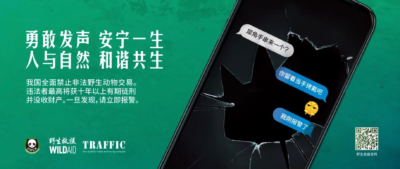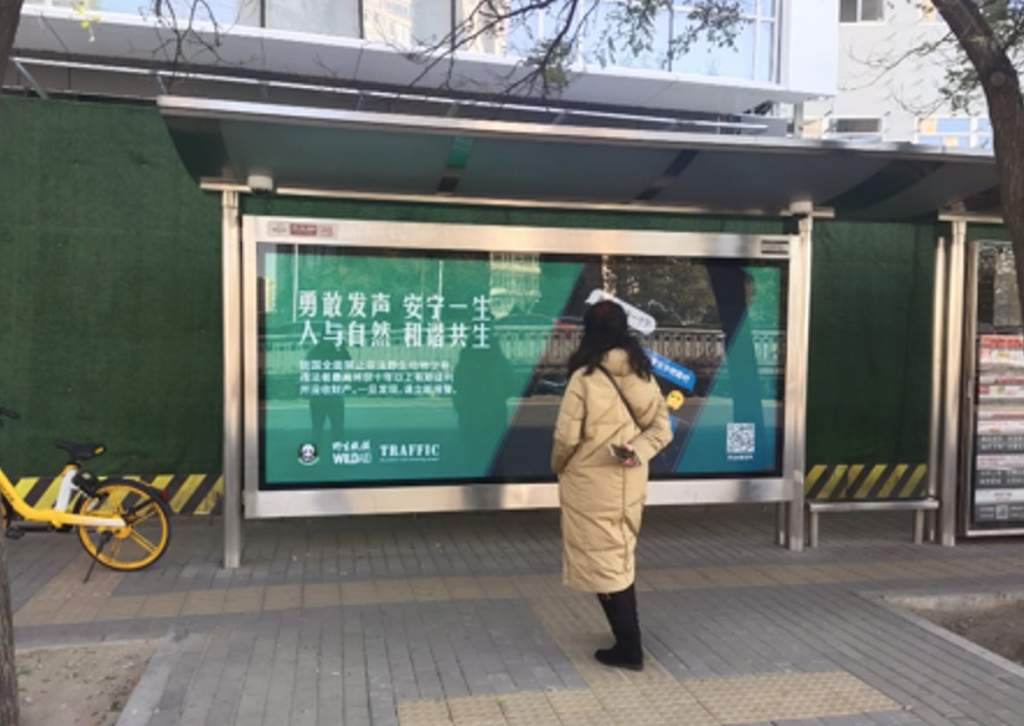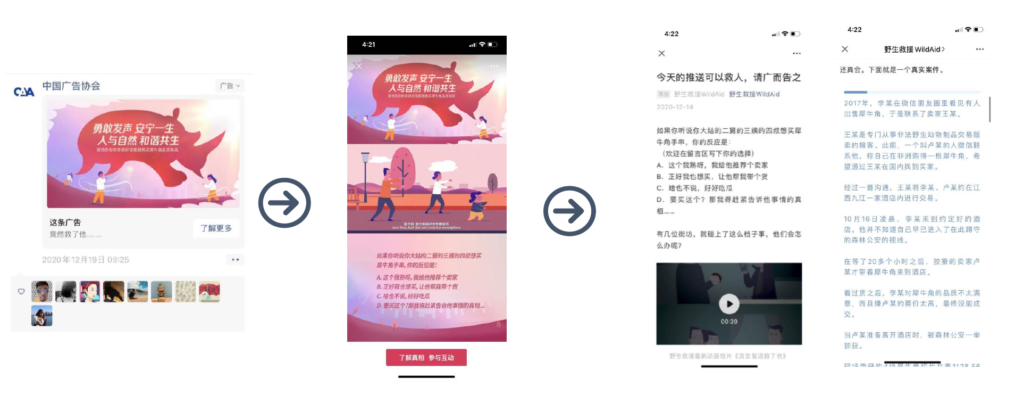
In December 2020, WildAid China launched its “Speak Out and Save a Rhino’s Life” campaign to deter potential consumers from future purchases by emphasizing the strong laws prohibiting any trade of rhino horn.
The campaign also urged consumers to report witnessed cases of illegal rhino horn trade to the police as well as to encourage their friends, colleagues and family not to buy such products.
Launched in partnership with TRAFFIC and China Wildlife Conservation Association, the campaign targeted male consumers aged between 30-50 years along with antique and craft merchants located in nine major Chinese cities believed to have higher incidence of illegal rhino horn trading.


The campaign was comprised of video and print PSAs, along with a mini survey on WeChat. The video PSA played on over 2800 panels on taxi LED screens in Shanghai, and on over 300 LED screens in Haikou and Nanning airports. The printed display ads were placed on over 200 outdoor billboards near antique and craft markets.
Over two weeks in December, the print display ads were estimated to have attracted more than 125 million views. Over the same period, the WeChat campaign secured almost 2 million impressions and reached more than 300,000 potential buyers. After viewing the ads on WeChat, the audience was asked to complete a multiple-choice survey.
When asked “What will you do after watching this video?” over 81% of those surveyed responded that they would never purchase rhino horn products and 65% selected that they would report any potential illegal trade they witness to the police. In addition, more than 58% of the audience selected that they would share the message to friends and family.


Although rhino horn has been banned for 25 years in China, consumption has continued as well as in Vietnam, where some believe it is a purported cancer cure, general health tonic and hangover cure. Primarily composed of keratin, the same protein found in human hair and fingernails, rhino horn has no known unique medicinal properties.
The consumer demand for rhino horn in China and Vietnam has fueled poaching and in the past 40 years, the world has lost 95% of its rhinos in Africa and Asia. Recent news reports say that the world’s largest rhino population in Kruger National Park, South Africa has plummeted to an estimated 3,529 white rhinos and 268 black rhinos. This represents a population reduction of 67% for white rhinos – from 10,621 in 2011 and 35% for black rhinos – from 415 in 2013.
While there is no legal rhino horn trade in China or Vietnam, releases there have been numerous Customs seizures in China as well as Vietnam in the past year. Sizes of the seizures varied, but some of the larger amounts of rhino horn confiscated during transit in China were in Guangzhou city, where customs seized 16 pieces of rhino horn weighing 36.6kg and in Jiangmen city, where customs seized 28kg rhino horn including 1 rhino horn cup. In December 2020, Vietnamese police and customs officers in Ho Chi Minh City seized more than 90kg of suspected rhino horns at Tan Son Nhat International Airport.
WildAid will continue to raise public awareness of the impact of consuming, buying and trading wildlife products in China and Vietnam. You can learn more about our work on protecting rhinos here.
Stay in touch and get the latest WildAid updates.
SIGN UP